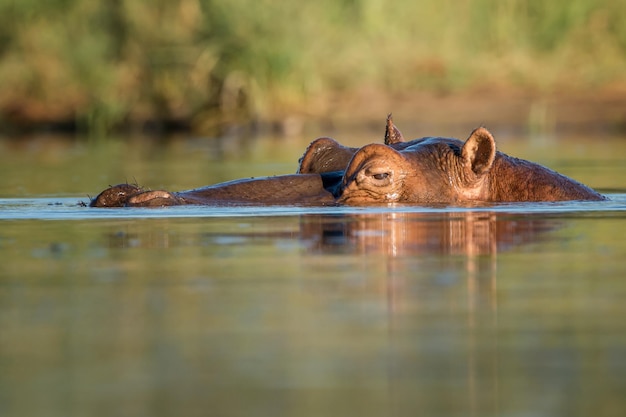Hippopotamus Amphibius: Wild African Wildlife in Its Natural Habitat – Free Download
Hippopotamus Amphibius: A Glimpse into African Wildlife
The hippopotamus, scientifically known as Hippopotamus amphibius, is one of the most fascinating creatures found in the wild of Africa. Often referred to simply as "hippos," these large mammals are significant icons of the African landscape. They can usually be spotted in lakes, rivers, and swamps, where they spend most of their time submerged in water, staying cool under the hot sun.
Habitat of the Hippopotamus
Hippos thrive in various habitats across sub-Saharan Africa. Their preferred environment includes:
- Rivebanks and lakeside areas
- Marshy wetlands
- Floodplains during the rainy season
These habitats offer hippos the necessary water bodies to stay submerged during the day, as they are prone to overheating.
Physical Attributes and Behavior
Hippos are characterized by their massive size and stocky build. Here are some key physical features:
- Weight: Adult hippos can weigh between 3,000 to 4,000 pounds.
- Length: They can reach lengths of up to 16 feet.
- Skin: Their skin is thick and hairless, often appearing gray or brown.
Despite their size, hippos are surprisingly agile in water. They can hold their breath underwater for up to five minutes, making them skilled swimmers.
Diet and Feeding Habits
As herbivores, hippos primarily graze on grasses during the cooler hours of the night. Their diet largely consists of:
- Grass
- Aquatic plants
- Occasionally drought-resistant bush vegetation during dry seasons
They can consume up to 150 pounds of grass in just one night, which showcases their impressive eating habits.
Importance of Hippos in African Ecosystems
Hippos play an essential role in maintaining the health of their ecosystems. Hereâs how:
- They help regulate plant growth through their grazing.
- Their dung provides nutrients to the water, supporting aquatic life.
- They serve as prey for large carnivores, contributing to the food chain.
Conservation Status
While hippos are not currently endangered, they face threats from habitat loss and poaching. Conservation efforts are crucial to ensure their survival and the preservation of their natural habitats.
In summary, the Hippopotamus amphibius is a remarkable animal that embodies the beauty of African wildlife. Their unique adaptations to life in water and their significant role in the ecosystem make them a vital part of Africa's natural heritage.












